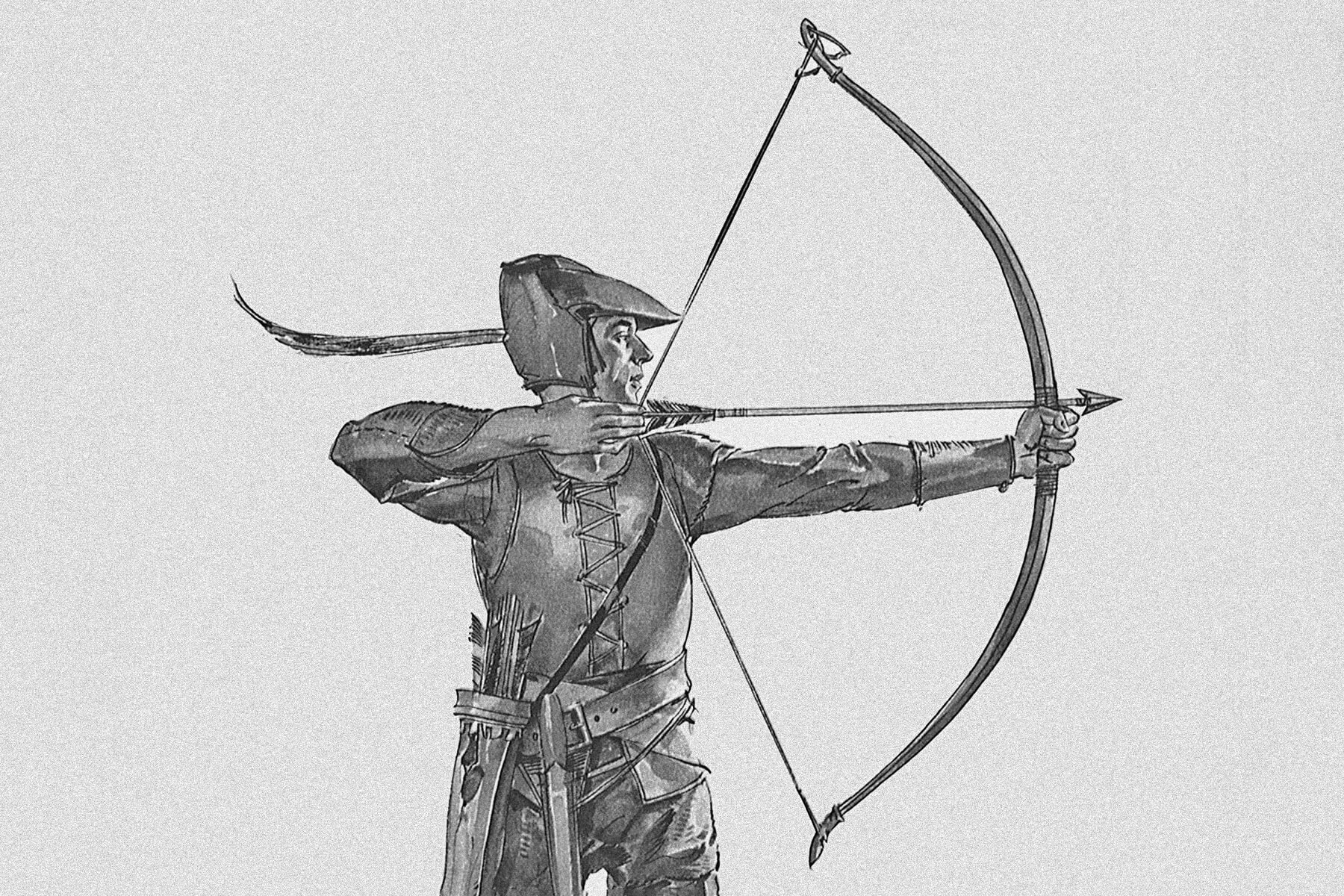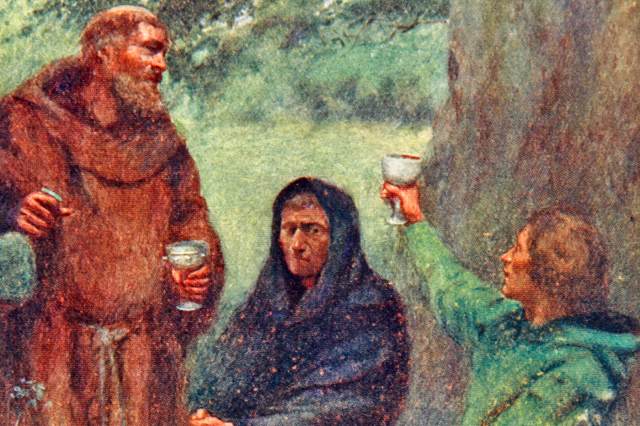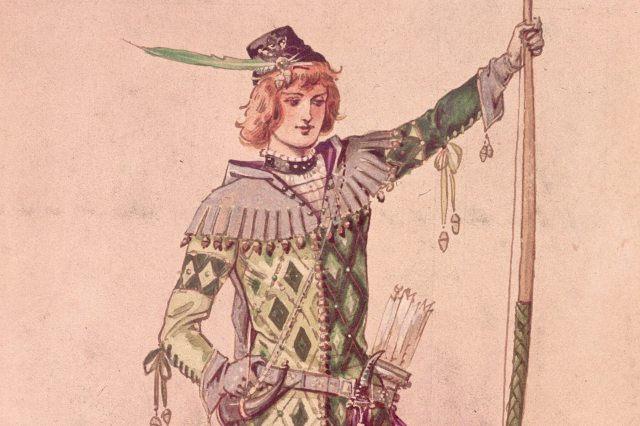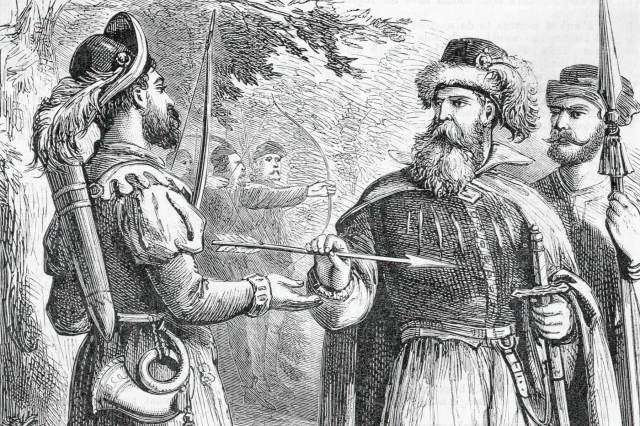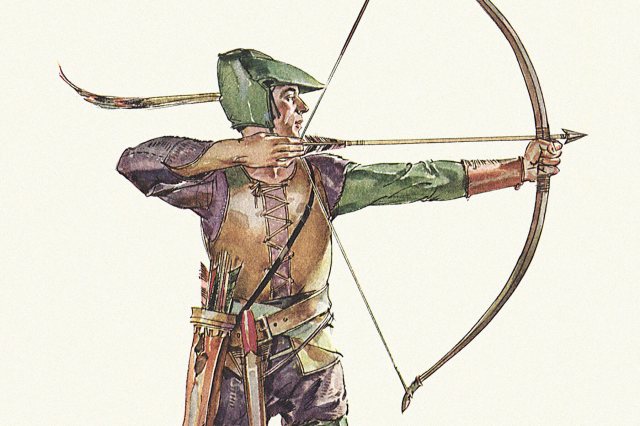Is Robin Hood Based on a Real Person?
As with Santa Claus, the legend of Robin Hood has spread across many cultures through the centuries as an emblem of merriment, generosity, and other lovable aspects of human nature. Whether he’s robbing the rich to give to the poor, outwitting the dastardly Sheriff of Nottingham, or laughing it up with his Merry Men in Sherwood Forest, the heroic outlaw has been immortalized through song, in print, and on the big screen by way of dashing A-listers from Douglas Fairbanks to Russell Crowe.
But unlike with Santa, there’s something inherently realistic about this English folk hero. There are no flying reindeer in his tales — only flying arrows that highlight his skill as a marksman. And while he embodies such noble values as friendship, loyalty, and devotion to justice, he achieves his goals without the kind of extra-worldly powers that prominently feature in a superhero movie. As a result, it’s not surprising that many historians over the years have sought to pinpoint whether there was an actual Robin Hood — or at least a real-life inspiration for the legend.
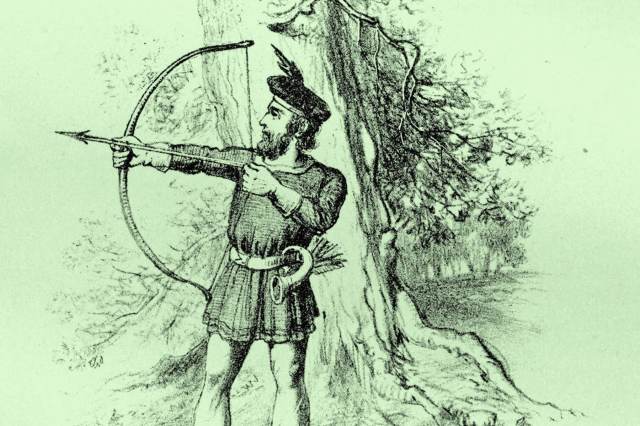
Part of the problem with taking on that task is sorting through Robin’s shifting identity in the various historical works that mention him. Depending on where you look, Robin Hood was either a yeoman or a fallen noble; a native of Nottinghamshire, Yorkshire, or Barnsdale; a veteran of the Crusades or territorial battles against the Normans; and a contemporary of King John, Henry III, or Edward III.





